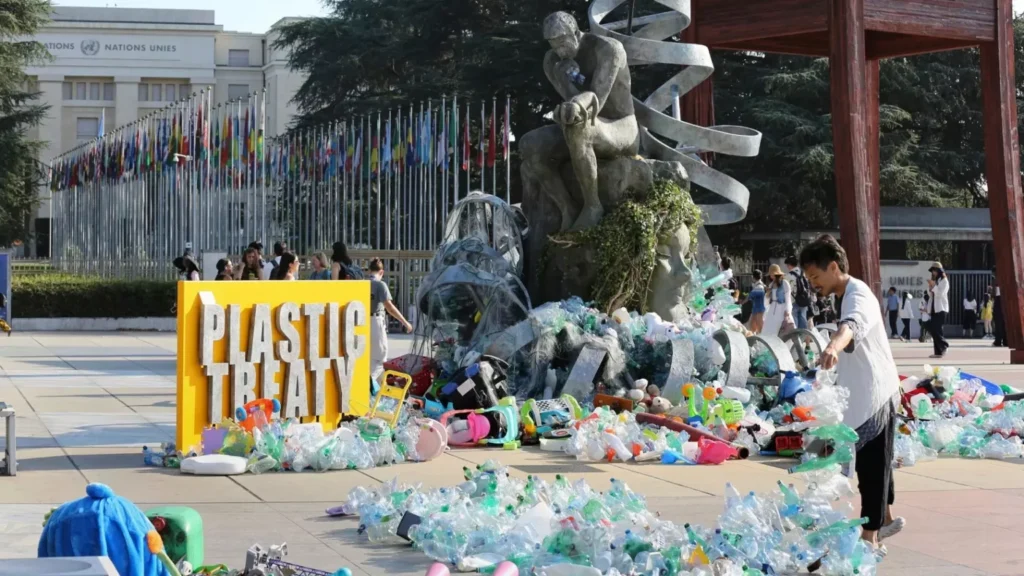Plastic Treaty Talks Stall in Geneva, But Countries Commit to Continue Negotiations

The latest round of United Nations negotiations aimed at securing a legally binding treaty to end plastic pollution ended Friday without agreement, but with countries pledging to keep working toward a deal.
“This has been a hard-fought 10 days against the backdrop of geopolitical complexities, economic challenges and multilateral strains,” said Inger Andersen, Executive Director of the UN Environment Programme (UNEP). “However, one thing remains clear: despite these complexities, all countries clearly want to remain at the table.”
10 Days of Intensive Negotiations
The resumed fifth session of the Intergovernmental Negotiating Committee (INC-5.2) brought together more than 2,600 participants at the UN Palais des Nations, including 1,400 country delegates from 183 nations and nearly 1,000 observers from over 400 organizations.
The talks followed an earlier session in Busan (INC-5.1) and sought to finalize treaty text covering the entire lifecycle of plastics, from production and design to waste management.
Civil Society at the Forefront
Outside the negotiating rooms, civil society groups played an active role, including Indigenous Peoples, waste pickers, scientists, youth activists, and artists. Protests, art installations, and media briefings highlighted global calls for stronger action on plastic pollution — a problem UNEP says is found “in our groundwater, in our soil, in our rivers, in our oceans and yes, in our bodies.”
Key Issues and Sticking Points
Four contact groups worked in parallel on critical topics:
- Plastic design standards
- Chemicals of concern
- Possible production caps
- Finance and compliance mechanisms
Despite what UNEP described as “intensive engagement,” no consensus was reached on the draft treaty text. Divergent views remain over measures such as binding caps on plastic production and the scope of financing to support developing countries.
Calls for Persistence
INC Chair Luis Vayas Valdivieso acknowledged the disappointment but urged countries to stay the course.
“Failing to reach the goal we set for ourselves may bring sadness, even frustration. Yet it should not lead to discouragement. On the contrary, it should spur us to regain our energy, renew our commitments, and unite our aspirations,” he said.
Jyoti Mathur-Filipp, Executive Secretary of the INC Secretariat, added:
“As this session concludes, we leave with an understanding of the challenges ahead and a renewed and shared commitment to address them. Progress must now be our obligation.”
The Road Ahead
The process to create a legally binding instrument on plastic pollution began in March 2022 when the UN Environment Assembly adopted Resolution 5.2. The goal is to conclude negotiations with a final text ready for adoption at a diplomatic conference.
While no date has yet been set for the next session, Andersen stressed that public demand for action remains high:
“People are demanding a treaty.”
WWF’s statement from Erin Simon, Vice President and Head of Plastic Waste & Business:
“It’s deeply disappointing to leave Geneva without meaningful progress once again. This breakdown in negotiations means the plastic crisis will continue unchecked, while the world waits for the urgent action it so desperately needs. The path forward is now uncertain. We urge the majority of countries—who mobilized throughout this process to demonstrate their true commitment to ending plastic pollution—to reassert their leadership. In whatever comes next, there must be no more excuses. It’s time to show that protecting people’s lives and the planet is non-negotiable.”











